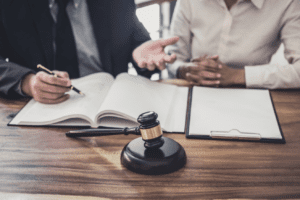
The Belcampo scandal was a shocking revelation that left many individuals and communities reeling in its aftermath. The once-respected company was uncovered to have been involved in fraudulent activities, causing significant financial losses to its clients and employees. This unfortunate event serves as a reminder of the prevalence and impact of fraud in our society.
What is Fraud?
Fraud is a deliberate deception or misrepresentation for personal gain. It can take various forms such as identity theft, embezzlement, Ponzi schemes, and insurance scams, among others. Fraudsters often use sophisticated tactics to manipulate innocent individuals, businesses, and organizations for their own benefit.
In recent years, there has been a significant increase in fraud cases globally. With the rise of technology and online transactions, fraudsters have access to more opportunities to carry out their malicious activities. As a result, it has become more crucial than ever to educate ourselves and take necessary precautions against fraud.
The High Cost of Fraud
The consequences of fraud extend beyond just financial losses. It also erodes trust and confidence in institutions and individuals, leading to a breakdown of relationships within communities. Victims of fraud often experience emotional distress, stress, and embarrassment, which can have long-term effects on their well-being.
Besides the immediate harm to individuals, fraud also has far-reaching consequences on society as a whole. When businesses fall victim to fraud, it can lead to layoffs and job losses, affecting not only the employees but also the economy. In addition, fraudsters often target vulnerable individuals, including the elderly and low-income groups, further exacerbating existing social inequalities.
The Role of Education and Awareness
To combat fraud effectively, it is crucial to educate and raise awareness within communities. The key is to be vigilant and informed about the different types of fraud and how to protect ourselves against them. For example, individuals can safeguard their personal information by being cautious when sharing details online or over the phone.
Institutions and businesses can also play a significant role in preventing fraud by implementing strict security measures and educating their employees and clients. It is essential to create a culture of transparency and open communication, where suspicious activities can be reported and addressed promptly.
Empowering Ourselves Against Fraud
While institutions play a crucial role in combating fraud, individuals must also take proactive steps to protect themselves. Here are some practical tips to avoid falling victim to fraud:
- Never give out personal information, such as bank account numbers or social security numbers, unless you are sure of the legitimacy of the request.
- Be cautious of unsolicited emails, phone calls, or messages asking for personal information.
- Regularly check your credit reports and financial statements for any unusual activity.
- Use secure websites when making online transactions.
- Keep your passwords strong and change them frequently.
- If you suspect fraudulent activity, report it immediately to the relevant authorities.
- Stay informed about the latest scams and fraud tactics.
The Silver Lining: Learning From Adversity
The Belcampo scandal was a devastating event for many, but it also serves as a valuable lesson for all of us. The experience has shed light on the importance of improving regulations and implementing stricter measures to prevent fraud. As individuals and communities, we must continue to work together to protect ourselves and each other against fraud.
Furthermore, this unfortunate event highlights the resilience and strength of individuals and communities in overcoming adversity. The Belcampo scandal has brought people together, united in their determination to seek justice and prevent similar incidents from occurring in the future.
Fraud is a dark cloud that looms over our society, but we should not let it overshadow the goodness and strength within each of us. Let us use this experience as a reminder to educate ourselves and take necessary precautions to protect ourselves and our communities against fraud. Together, we can build a safer and more trusting world for ourselves and future generations.




